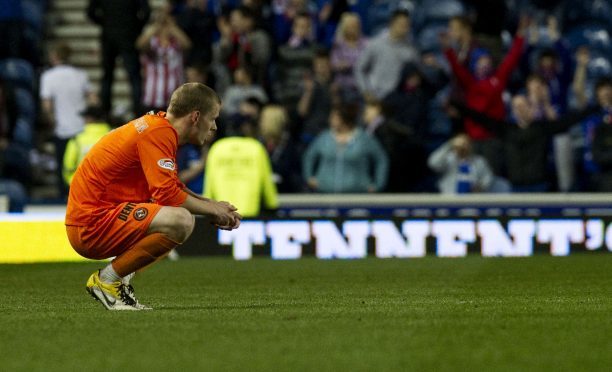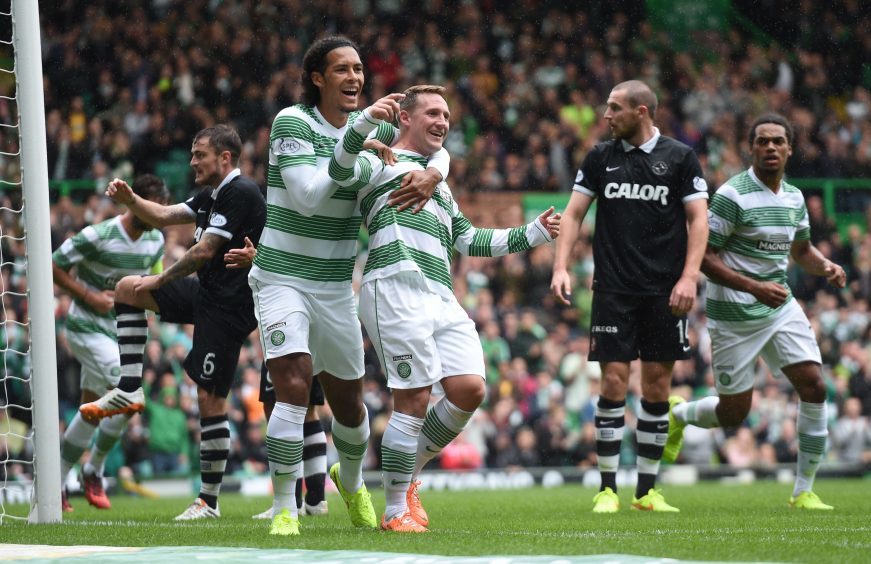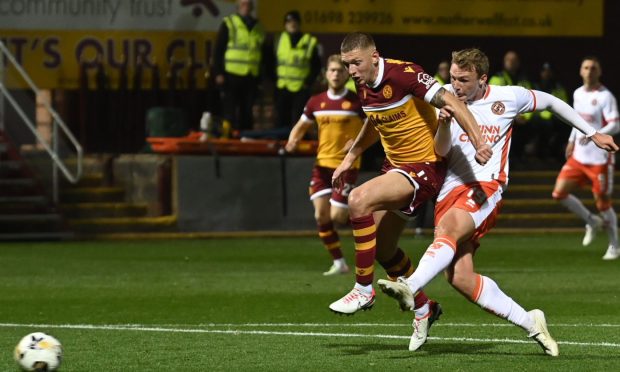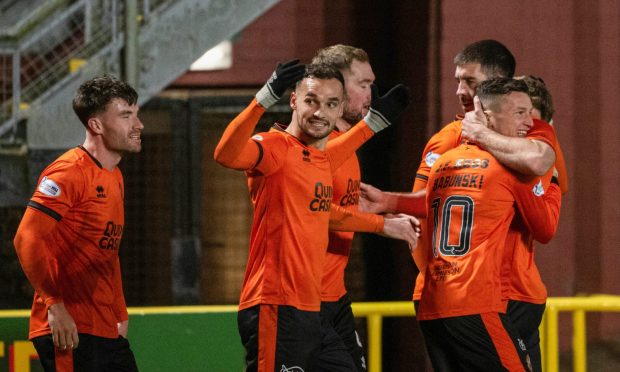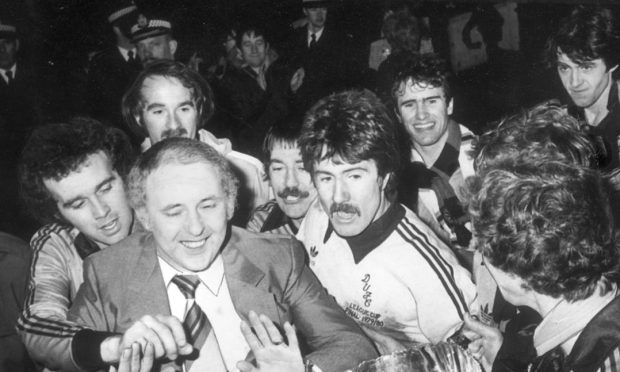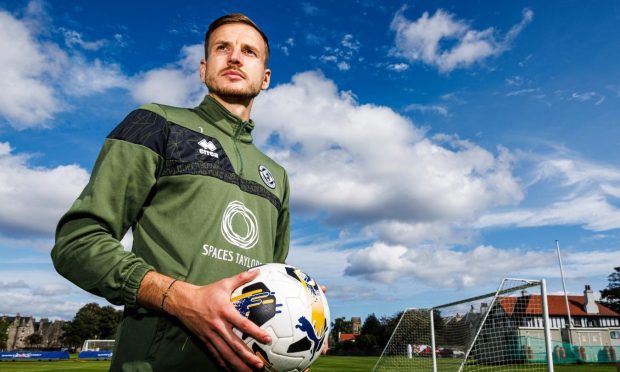Dundee United had people checking the history books when they crashed 6-1 to Falkirk on Saturday. The Courier’s sports writer Ian Roache looks back to try to find the last time they managed such a terrible result.
When considering where that defeat to the Bairns ranks among United’s worst results, you have to factor in two things.
The first is that it was “achieved” in the second tier of Scottish football and the other is that it wasn’t against either Celtic or Rangers.
The thinking behind doing that is that no loss in the Premiership or its forerunners can be ranked as badly as one at a lower level of competition, while any Scots team have been capable of losing heavily to the Hoops – past or present – as well as the Light Blues, certainly prior to their recent troubles.
The Tangerines, of course, have suffered their fair share of hammerings from the Glasgow duo.
Rangers have racked up a couple of 7-1 victories, a 6-1 win and few 5-0 success, while Celtic have beaten United 7-2, 6-1 and 5-0 over the years.
Also, there have been other notable nightmares, for example a 6-0 thumping from Aberdeen at Pittodrie on October 14, 1967, but, of course, that came in the top flight.
Therefore, taking the level of division and Old Firm factors into consideration, you look to season 1995-96 when United were in the First Division to search for similar scorelines.
There is none from that campaign that ranks alongside the Falkirk result.
At the time, United fans were probably thinking that it couldn’t get worse than a 2-1 home defeat to Airdrie on September 23, 1995 or the infamous 1-0 loss to Dumbarton at the old Boghead a fortnight later.
There were also defeats to St Johnstone, Dundee and a decisive one at home to Dunfermline on April 27, 1996 that put the Pars in pole position for the title.
However, you have to go much further back to find results that compete with the battering from the Bairns.
Indeed, our trip takes us all the way to 1958-59, a season that saw United finish third-bottom of the old Division Two (equivalent to today’s Championship).
There we find the last loss that can reasonably be described as worse than Saturday’s embarrassment.
That dubious honour goes to a 6-0 defeat to Cowdenbeath at Central Park on March 14, 1959.
That replaced an 8-2 loss away to Berwick Rangers three weeks earlier in the hall of shame, while that season also saw the Tannadice side go down 4-1 in the league at Stranraer, get hit 6-2 by Ayr United at Somerset Park, lose 5-1 to East Fife in Methil, as well as a couple of 6-1 hidings from Cowden and Morton in the League Cup.
So, to sum up, United have not managed such an abysmal result in the league in over 59 years.
On a positive note (or clutching at straws, if you prefer), towards the end of that dismal season, Jerry Kerr arrived to take over as manager following the resignation of Andy McCall.
Under the legendary Kerr, the Tannadice team won promotion as runners-up behind St Johnstone the following year and would go from strength to strength.
Memories of an eight-goal hiding from Berwick the previous season were banished as Tommy Campbell’s goal beat the wee Rangers on April 30, 1960 to take them up to the top tier, where they would stay until relegation in 1995.
